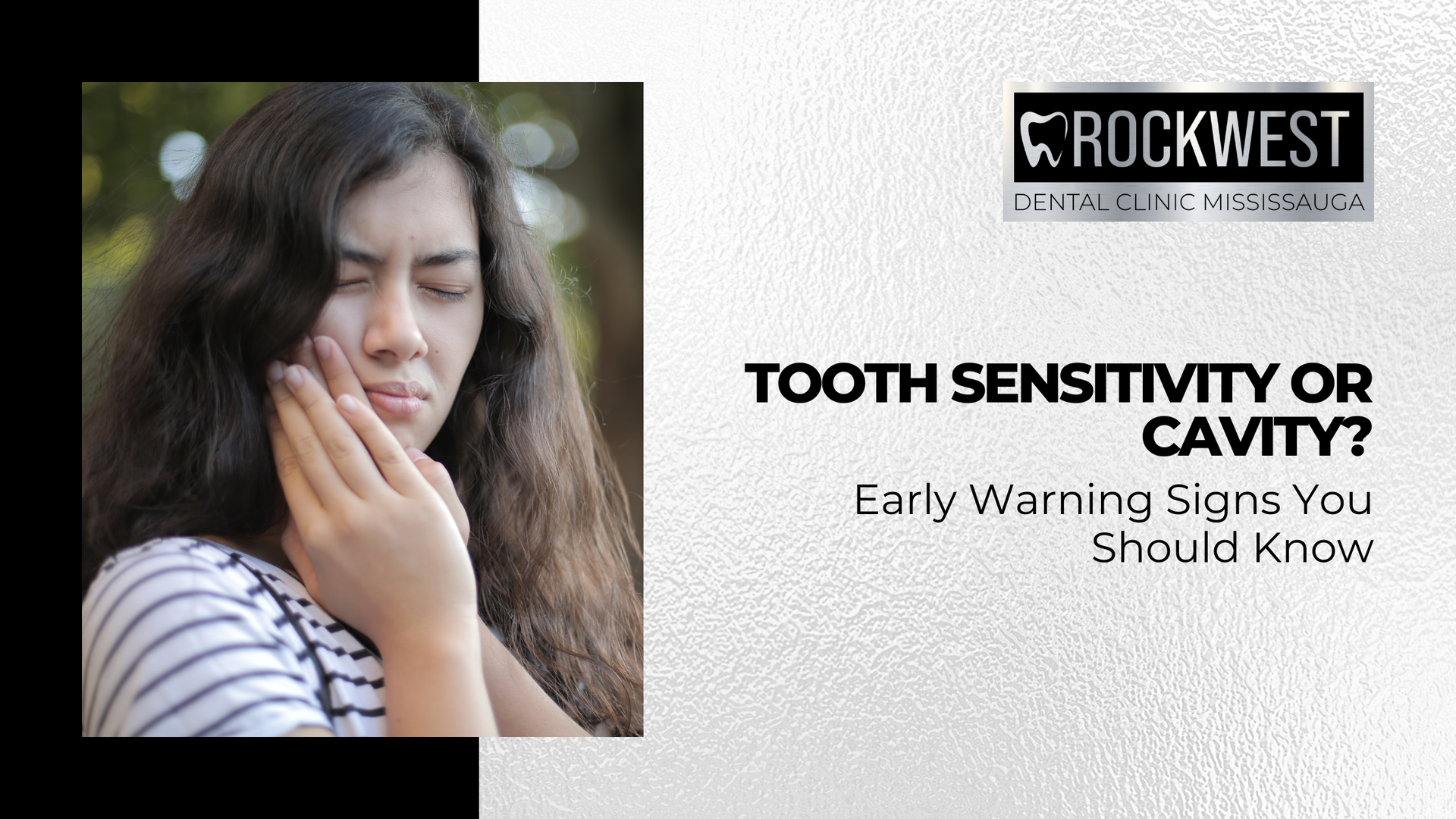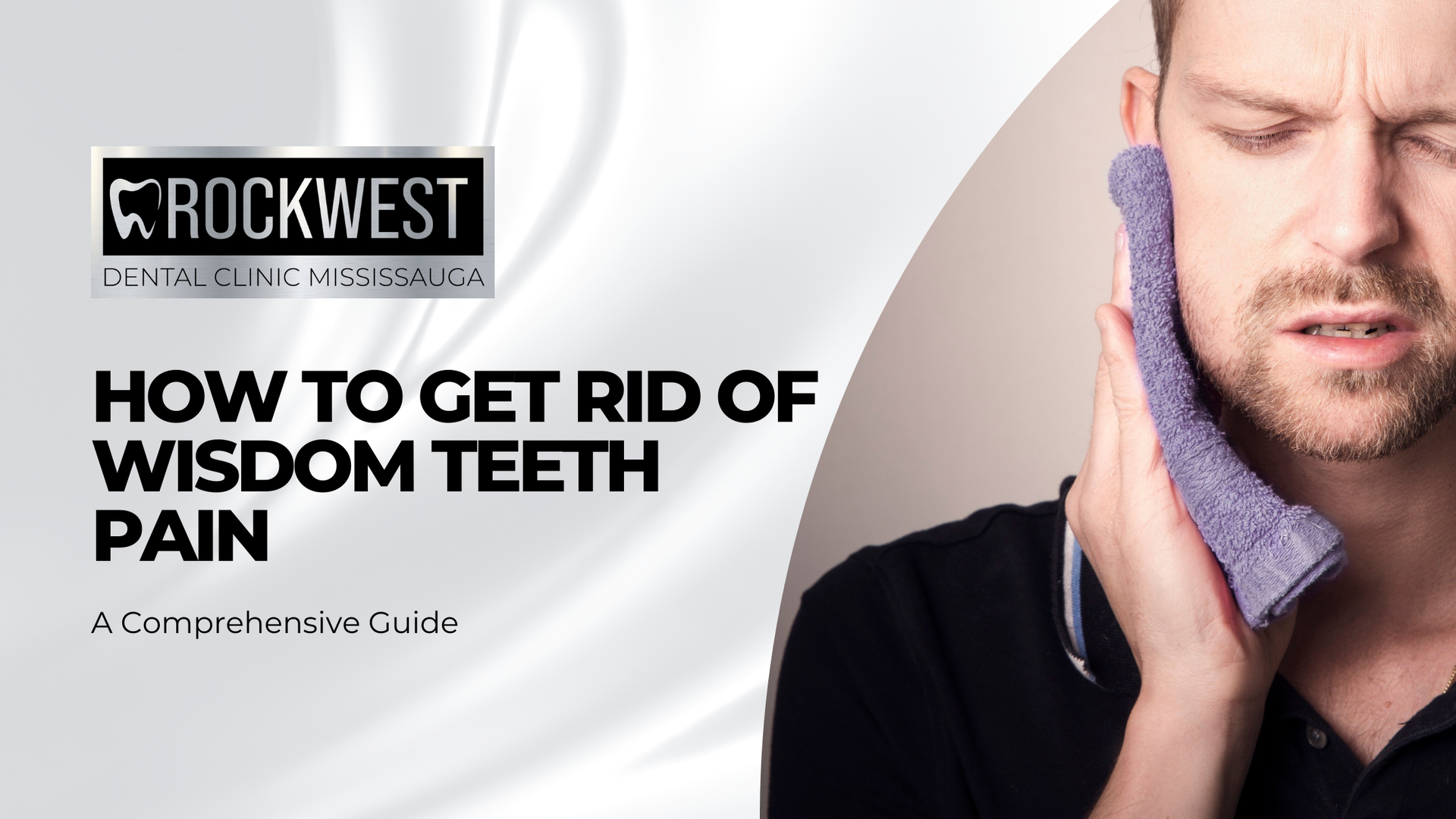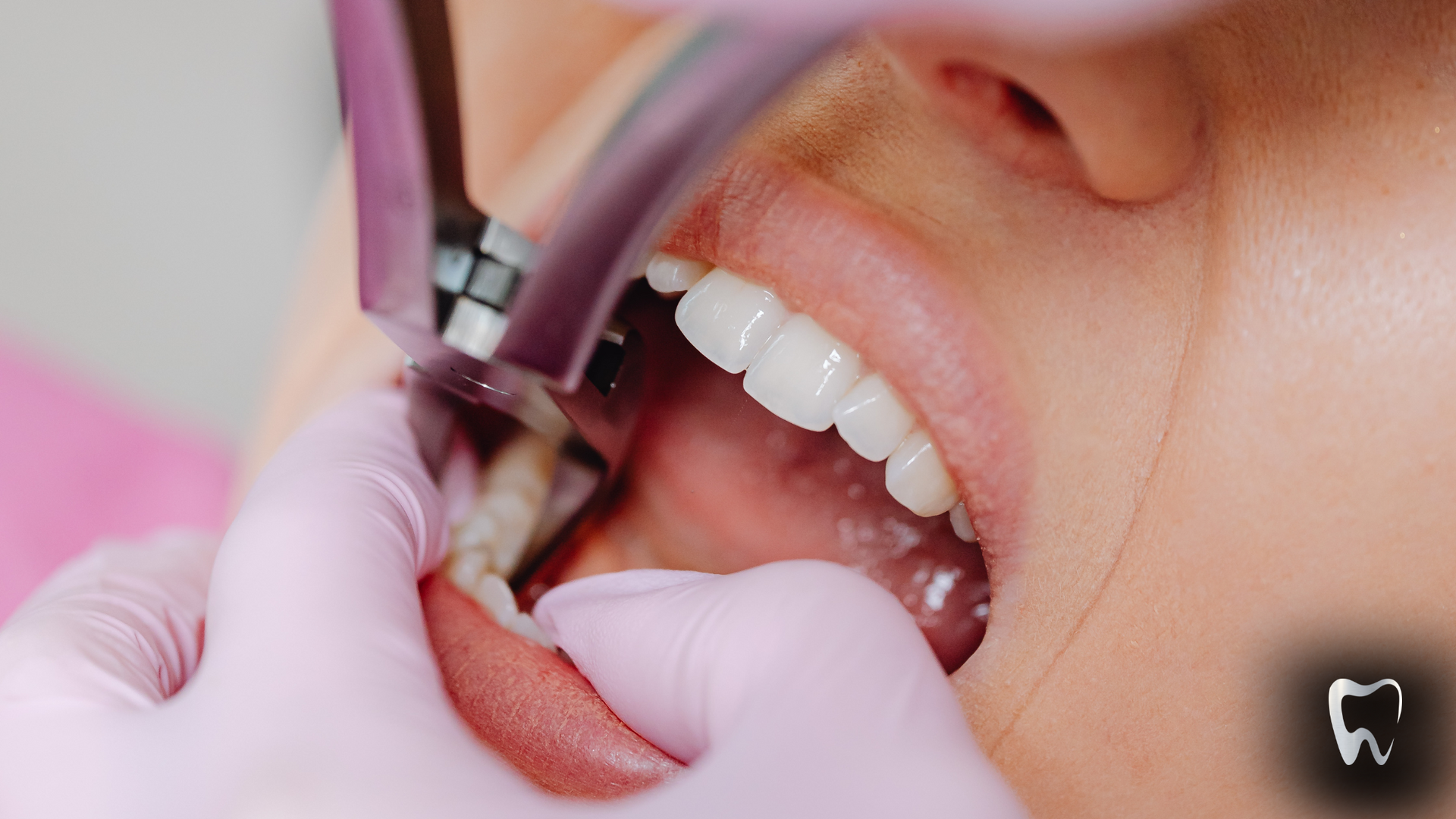




How to Get Rid of Wisdom Teeth Pain: A Comprehensive Guide
Rockwest Dental Clinic Mississauga • October 1, 2024

Source: Dr. Marketing
Wisdom teeth, also known as third molars, typically emerge in late adolescence or early adulthood between the ages of 17 and 25. While these teeth can grow without causing any issues, they sometimes lead to discomfort, pain, or even severe dental complications. The pain from wisdom teeth can be sharp, throbbing, and persistent, making it difficult to eat, speak, or focus on daily activities.
If you are struggling with wisdom teeth pain, you are not alone. Many people experience discomfort as these teeth erupt or become impacted. This comprehensive guide explores the causes of wisdom teeth pain, the best methods for relief, and when to seek professional help.
Understanding Wisdom Teeth Pain

Wisdom teeth pain can arise for several reasons:
- Eruption : As wisdom teeth break through the gums, they can cause inflammation, tenderness, and pain. The pressure of the tooth pushing through the gum line is often the source of discomfort.
- Impaction : When there isn’t enough room in the mouth for wisdom teeth to fully emerge, they can become impacted. This means they are trapped under the gum or against other teeth, causing significant pain, swelling, and even infection. It is crucial to monitor the signs and symptoms of impacted wisdom teeth for timely treatment.
- Infection : Partially erupted wisdom teeth can create an opening where bacteria can enter the gum, leading to an infection known as pericoronitis. Symptoms of infection include pain, swelling, foul breath, and an unpleasant taste in the mouth.
- Cavities : Wisdom teeth are located at the back of the mouth, making them harder to clean. This can lead to cavities, which can cause pain and increase the risk of further dental issues.
What Helps With Wisdom Teeth Pain?

Professional Treatment Options
Professional intervention for wisdom teeth pain is essential to prevent complications like infections, impaction, and damage to surrounding teeth. Early consultation with a dentist ensures proper diagnosis and timely relief, reducing the risk of more serious dental issues. If your dentist determines that your wisdom teeth need removal, they will discuss the best treatment options with you. Here are some common procedures:
Wisdom Teeth Extraction
The most definitive treatment for wisdom teeth pain is extraction. This procedure for wisdom teeth removal can be done by a general dentist or an oral surgeon, depending on the complexity of the case.
- Procedure : The dentist administers local or general anesthesia, makes an incision in the gum, and removes the tooth. The area is then sutured, and recovery typically takes a few days to a week.
- Recovery : After the extraction, you may experience some swelling, bruising, and discomfort, which can be managed with prescribed pain relievers and home care.
Antibiotics
If an infection is present, your dentist may prescribe antibiotics to treat it before proceeding with any surgical intervention
Usage
It is important to complete the full course of antibiotics as prescribed, even if symptoms improve before the medication is finished.
Dental X-Rays
Your dentist may take X-rays to evaluate the position of your wisdom teeth and determine the best course of action. This can help in planning an extraction or monitoring the teeth if they are not currently causing issues.
Wisdom Teeth Pain Relief: Home Remedies

Besides professional treatments, there are several home remedies you can try to alleviate the wisdom teeth pain symptoms:
Saltwater Rinse
A simple saltwater rinse is one of the most effective and easy remedies for wisdom teeth pain. The salt helps to reduce inflammation and combat infection.
- How to use : Dissolve one teaspoon of salt in a cup of warm water. Swish the solution in your mouth for 30 seconds before spitting it out. Repeat this several times a day, especially after meals.
Ice Pack
Applying an ice pack to the outside of your cheek can help numb the pain and reduce swelling.
- How to use : Wrap an ice pack or a bag of frozen peas in a towel and apply it to the painful area for 15-20 minutes. Repeat this several times a day as needed.
Over-the-Counter Pain Relievers
Non-prescription pain relievers, such as ibuprofen or acetaminophen, can be highly effective in managing wisdom teeth pain. They help reduce inflammation and provide temporary relief from discomfort.
- How to use : Follow the dosage instructions on the packaging. Avoid taking more than the recommended dose, and consult a healthcare provider if you have any concerns.
Topical Anesthetics
Topical anesthetics, such as numbing gels or ointments, provide temporary relief from wisdom teeth pain by numbing the affected area.
- How to use : Apply a small amount directly to the gums surrounding the wisdom tooth using a clean finger or cotton swab. The numbing effect typically begins within minutes, offering short-term comfort while you seek further treatment.
Clove Oil
Clove oil has natural analgesic and antibacterial properties, making it a popular remedy for dental pain.
- How to use : Soak a cotton ball in clove oil and apply it directly to the affected area. You can also dilute clove oil with a carrier oil, such as olive oil, to reduce the intensity.
When to See a Dentist

While home remedies can provide temporary relief, wisdom teeth pain can be a sign of a more serious issue that requires professional treatment. You should consult a dentist if you experience any of the following conditions.
- Persistent Pain : If the pain continues for more than a few days or worsens over time, it is important to seek professional advice.
- Swelling or Infection : Swelling of the gums, face, or jaw, or signs of infection, such as fever, pus, or a foul taste in the mouth, indicate that you need to see a dentist immediately.
- Difficulty Opening Mouth : If you’re unable to fully open your mouth or experience severe discomfort when doing so, it may indicate an impacted tooth that requires treatment.
- Damage to Nearby Teeth : Impacted wisdom teeth can cause damage to adjacent teeth, leading to cavities or misalignment.
Preventing Wisdom Teeth Pain

While you cannot prevent wisdom teeth from emerging, you can take steps to reduce the likelihood of pain and complications:
- Maintain Good Oral Hygiene : Their location at the back of the mouth makes them harder to reach with a toothbrush and floss, increasing the risk of cavities. Brushing twice a day, flossing, and using an antibacterial mouthwash can help prevent or minimize infections and cavities.
- Regular Dental Check-Ups : Regular visits to the dentist can help monitor the development of your wisdom teeth and catch any issues early on.
- Early Intervention : If your dentist notices potential problems with your wisdom teeth, they may recommend early removal before symptoms arise.
Importance of Professional Assistance For Wisdom Teeth Pain

Wisdom teeth pain can be distressing, but with the right approach, it can be managed effectively. Home remedies offer temporary relief, but it is crucial to consult with a dentist if the pain persists or if there are signs of infection or impaction.
Early intervention and regular dental check-ups are key to preventing more serious complications and ensuring your oral health remains in top condition. If you are experiencing wisdom teeth pain, do not hesitate to seek professional advice to find the best solution for your needs. At Rockwest Dental Clinic Mississauga, our team of expert dentists offer effective solutions and treatments for all dental complications. Contact us today for any questions or concerns.
References
- Renton T, Wilson NH. Problems with erupting wisdom teeth: signs, symptoms, and management. Br J Gen Pract. 2016 Aug;66(649):e606-8. doi: 10.3399/bjgp16X686509. PMID: 27481985; PMCID: PMC4979926.
- Lodi G, Azzi L, Varoni EM, Pentenero M, Del Fabbro M, Carrassi A, Sardella A, Manfredi M. Antibiotics to prevent complications following tooth extractions. Cochrane Database Syst Rev. 2021 Feb 24;2(2):CD003811. doi: 10.1002/14651858.CD003811.pub3. PMID: 33624847; PMCID: PMC8094158.
The post How to Get Rid of Wisdom Teeth Pain: A Comprehensive Guide appeared first on Rockwest Dental Clinic Mississauga.









